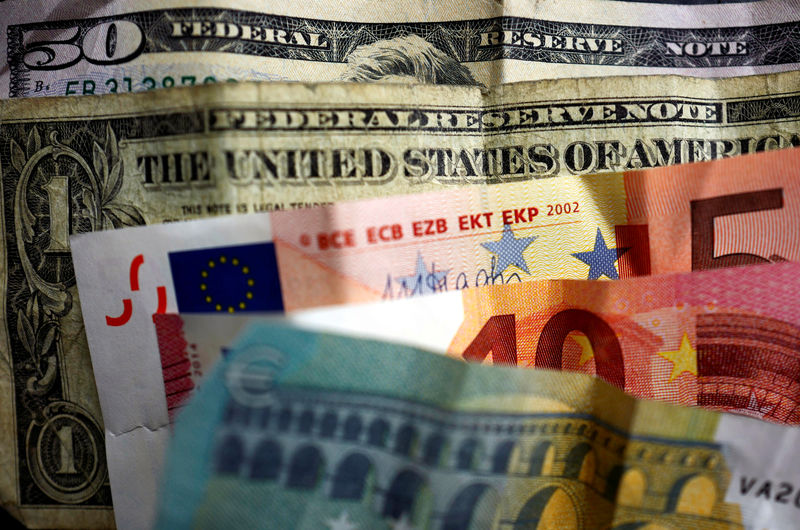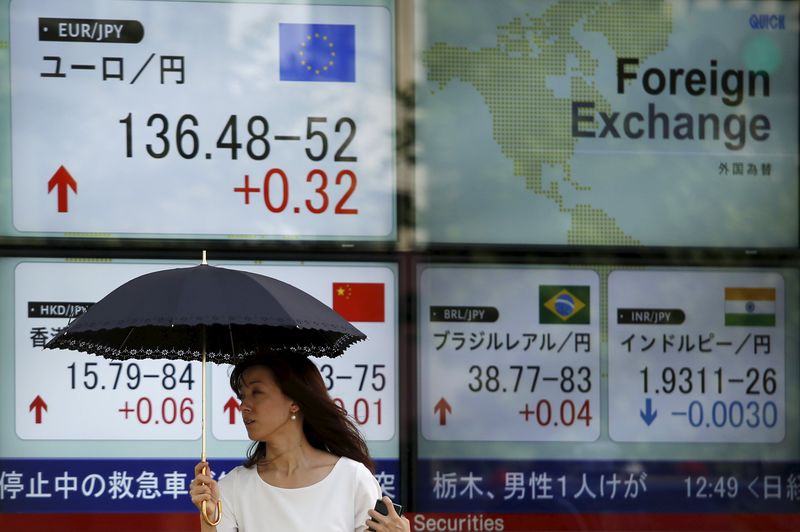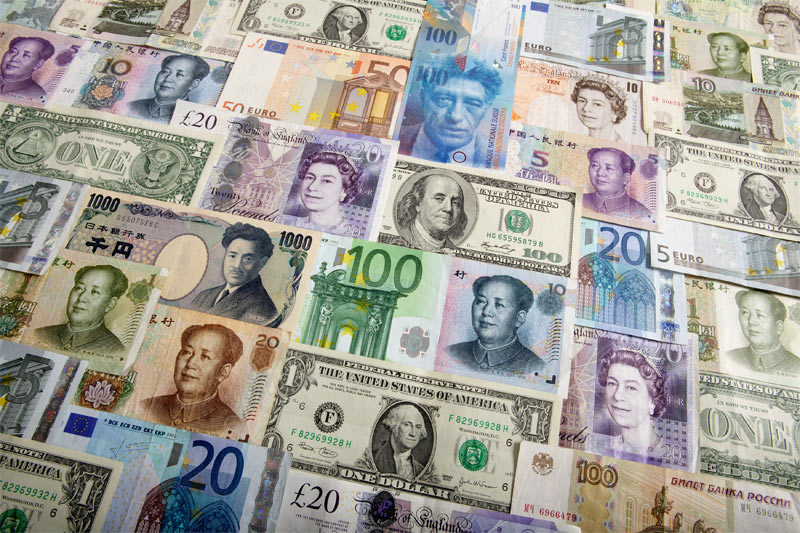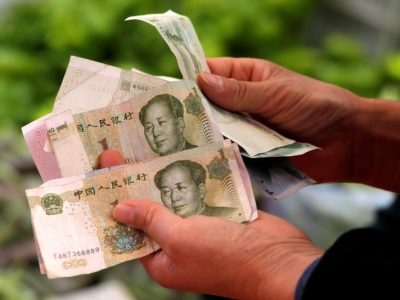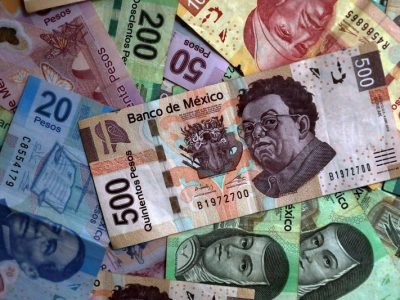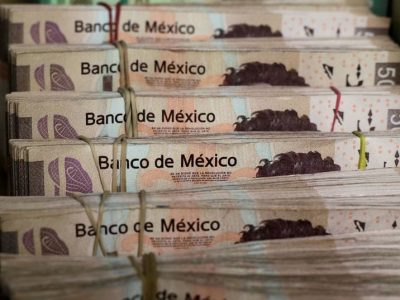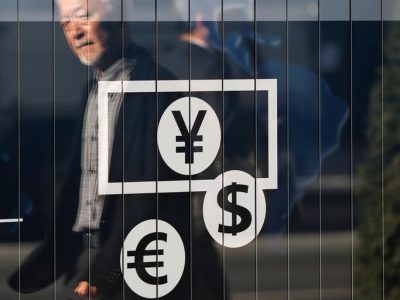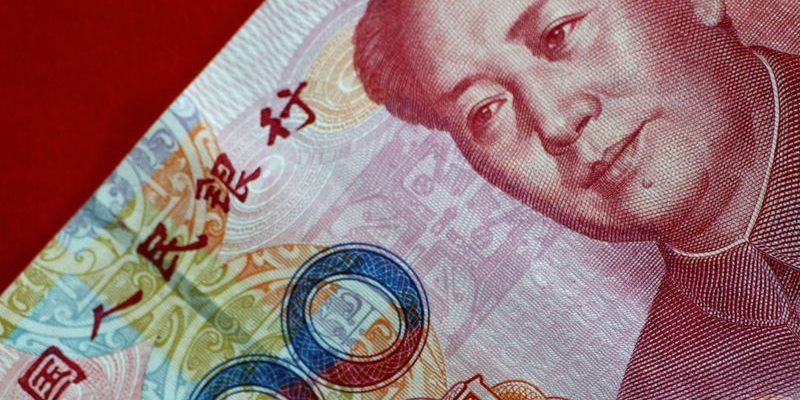
(Reuters) -Reuters reported on Wednesday that China is considering allowing the yuan to weaken in 2025 to brace for higher trade tariffs in a second Donald Trump presidency, citing people familiar with the matter.
Foreign exchange markets moved on the news, with the yuan falling about 0.3% to 7.2803 per dollar and China-sensitive currencies such as the South Korean won and New Zealand dollar slipping.
The Australian dollar touched a one-year low .
Here are comments from market analysts and participants:
NICHOLAS REES, SENIOR FX MARKET ANALYST, MONEX, LONDON:
“News that China will allow the yuan to weaken as they prepare for Trump tariffs does not come as a shock – this has been one of our high-conviction calls post-election day.
“As we see it, Chinese authorities understand that they need to establish a negotiating position, and that right now they have first mover advantage. If anything, we think markets are still underestimating the degree to which the yuan could weaken in the next year if tariffs are implemented. But, given the yuan’s role as a regional FX anchor, significant depreciation is likely to have broader knock-on effects, particularly across Asian FX”
CHRIS SCICLUNA, HEAD OF ECONOMIC RESEARCH, DAIWA CAPITAL MARKETS, LONDON:
“Most people would assume that the response to implementing tariffs would be to allow the yuan to weaken. Even if European exports are hit (by tariffs), the markets will react by weakening the euro.
“So, it’s about if and when. The currency adjustment might offset the impact of tariffs.
“There is a question about whether or not a weaker yuan is appropriate given the performance of Chinese exports, which are strong while imports are weak. The appropriate response to that is not a weaker currency.
“But if you have additional tariffs from the U.S., then we will get a weaker yuan. Then the U.S. will have to ask the question of whether it’s worth it.”
FRED NEUMANN, CHIEF ASIA ECONOMIST, HSBC, HONG KONG:
“Currency adjustments are on the table as a tool to be used to mitigate the effects of tariffs. I think that is clear.
“It’s tempting to think that Chinese currency weakness could fully offset the tariffs in the U.S. and kind of neutralise the impact on the economy. But I think that would be short-sighted.
“The Chinese leadership is likely also to be mindful about the impact of a weaker Chinese currency on other trading partners.
“If China takes the currency aggressively lower, it raises the risk of a tariff cascade … so I think there is a bit of a risk here that if China uses its currency angle too aggressively, it could lead to a backlash among other trading partners and that’s not in the interest of China.”
MATT SIMPSON, SENIOR MARKET ANALYST, CITY INDEX, BRISBANE:
“China recently said that nobody wins in a race to the bottom, but that doesn’t mean they’re not prepared to play along. Now we just need to see a slightly hotter U.S. inflation print to send USD/CNH above 7.3 to help AUD/USD fall to 63c.”
LYNN SONG, CHIEF ECONOMIST FOR GREATER CHINA, ING, HONG KONG:
“This sort of mild depreciation is still well within expectations, given an expected stronger dollar backdrop.
“There’s some voices in markets calling for a quick 10-20% depreciation to help offset tariffs. We don’t expect an intentional and sharp depreciation like this…rapid movement abandoning the currency stability objective would also unwind the progress made over the last few years on maintaining Chinese purchasing power, reducing capital outflow pressure, and improving the RMB’s role as a settlement currency.”
JIN MOTEKI, CURRENCY STRATEGIST, NOMURA SECURITIES, TOKYO:
“Even if the Chinese yuan depreciates to some extent because of Trump’s tariffs, I think the yen is unlikely to move in the same direction.
“I think maybe if the Chinese government allows yuan to depreciate, it will support Chinese exports. So in this sense, in terms of the demand supply and balance, the yuan is supported by the improvement in the Chinese trade balance.”
KEN CHEUNG, FX STRATEGIST, MIZUHO, HONG KONG:
“If currency depreciation served as a tactic to counter the tariff shock, the likely escalating trade war could reinforce USD exceptionalism and weigh on regional currencies.
“Yuan depreciation to 7.5 will remain manageable on the capital outflow risk, especially with FX stabilising tools in play to manage depreciation pace and magnitude.”
CHARU CHANANA, HEAD OF CURRENCY STRATEGY, SAXO, SINGAPORE:
“China appears increasingly anxious about the impending Trump presidency, as indicated by Monday’s stimulus announcement and today’s reports on the yuan depreciation. However, these measures do little to tackle China’s fundamental issues of debt and the lack of confidence among consumers and businesses.
“In fact, a weaker yuan exacerbates these problems and poses the risk of China being labelled a currency manipulator by the U.S. Treasury.”


